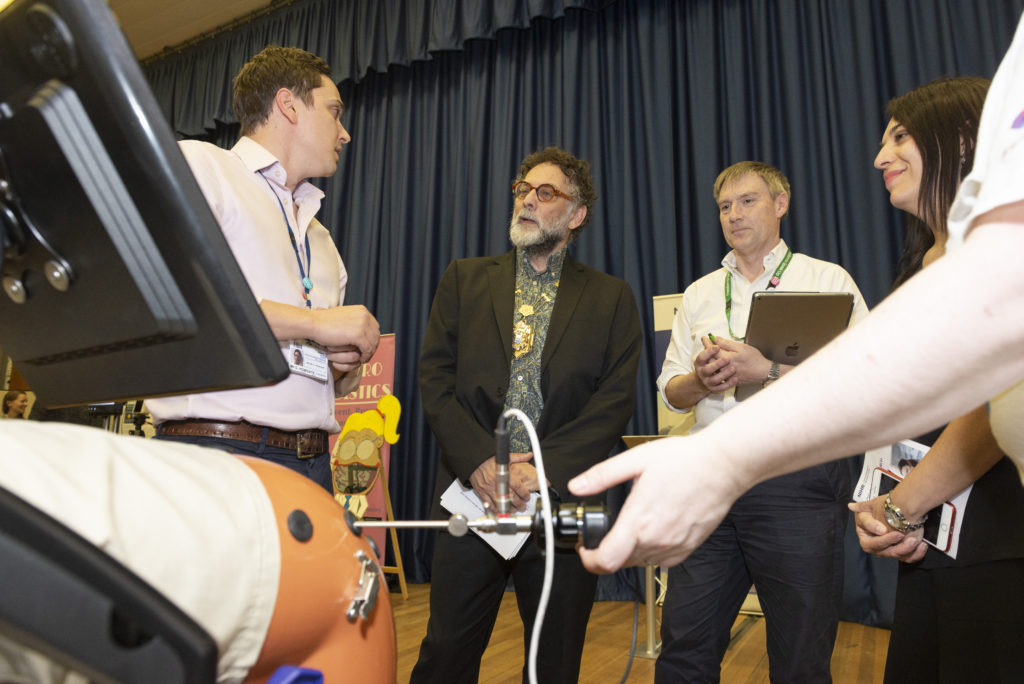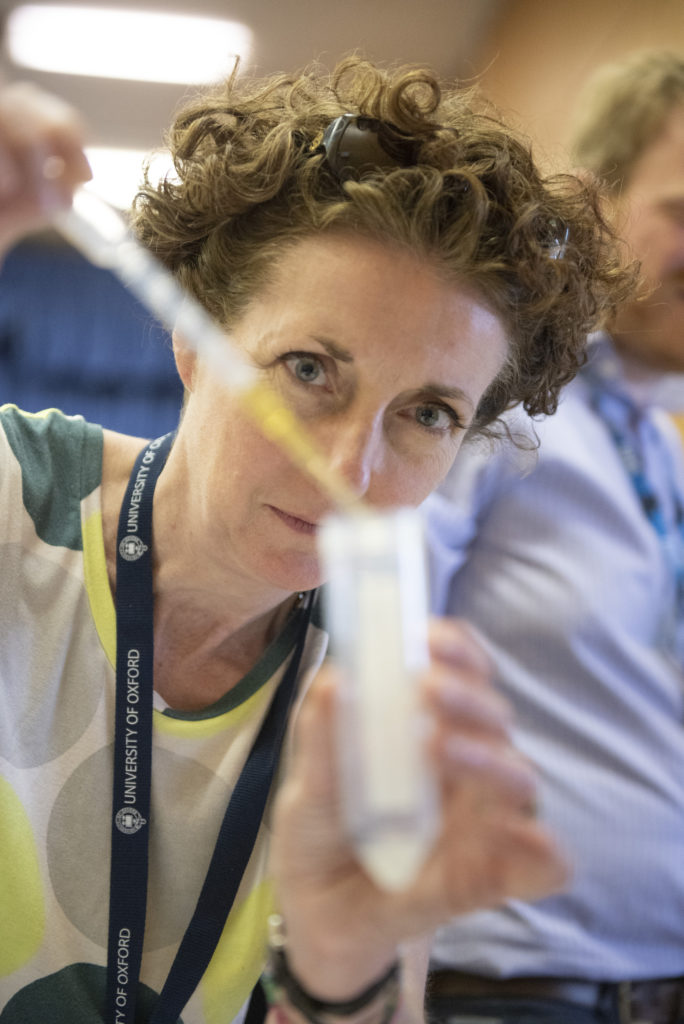
The breadth of world-class medical research that takes place in Oxford was on show on Friday as the Oxford Biomedical Research Centre hosted an Open Day.
Around 400 people attended the event at the John Radcliffe Hospital, which included an exhibition showcasing medical innovations from a wide range of medical fields.
A series of public talks was also held on topics as diverse as how to ensure artificial intelligence benefits patients, the latest developments in asthma treatment and how teams from Oxford University Hospitals (OUH) and the University of Oxford used a combination of big data analysis, whole genome sequencing and infection control to halt an outbreak of the potentially deadly fungal infection Candida auris.
There were also free tours of the Oxford Acute Vascular Imaging Centre, a unique facility based at the John Radcliffe dedicated to clinical research in acute coronary syndromes, stroke, brain injuries and vascular disorders.

The Lord Mayor, Cllr Craig Simmons, and OUH Chair Prof Sir Jonathan Montgomery, take a look at the Musculoskeletal Theme stand
As well as researchers from the Oxford BRC’s 20 themes, visitors were able to interact with other key local health research partners such as Oxford Health BRC, the Academic Health Science Network and the Clinical Research Network, as well as the Oxford Hospitals Charity.
The event, which was attended by Lord Mayor Cllr Craig Simmons, was officially opened by OUH Chair Prof Sir Jonathan Montgomery and Chief Medical Officer Prof Meghana Pandit.
The Oxford BRC Director, Prof Helen McShane, said: “This Open Day is very important because it allows us to engage directly with the local community, with patients and the public in Oxfordshire. It also allows us to engage with the local NHS staff who may want to get more involved with the BRC and in research. But of course it allows us to showcase the absolutely outstanding translational research that’s happening here.”

Prof Sir Jonathan said: “What’s important about an event like today’s is it shows that it’s a partnership. The Biomedical Research Centre is formally a partnership between the University and Oxford University Hospitals, but it’s really also a much broader partnership with the public and patients and individual researchers. The key thing is that everyone gets the best possible value from what they put in.”
The Oxford BRC is based at the Oxford University Hospitals and run in partnership with the University of Oxford. It was one of the first BRCs set up by the National Institute for Health Research (NIHR) in 2007 and is one of the largest today. In its third round of funding, it was awarded £113.7m to support translational research from 2017 to 2022 across 20 research themes, including cancer, heart disease, stroke and other conditions, diabetes, microbiology and infections, musculoskeletal, neurological conditions, gastroenterology and immune conditions, vaccines, respiratory conditions, haematology, obesity, genomics, imaging, digital technology and the use of clinical data.
The Oxford BRC’s aim is to translate basic scientific developments into tangible clinical benefits for NHS patients.